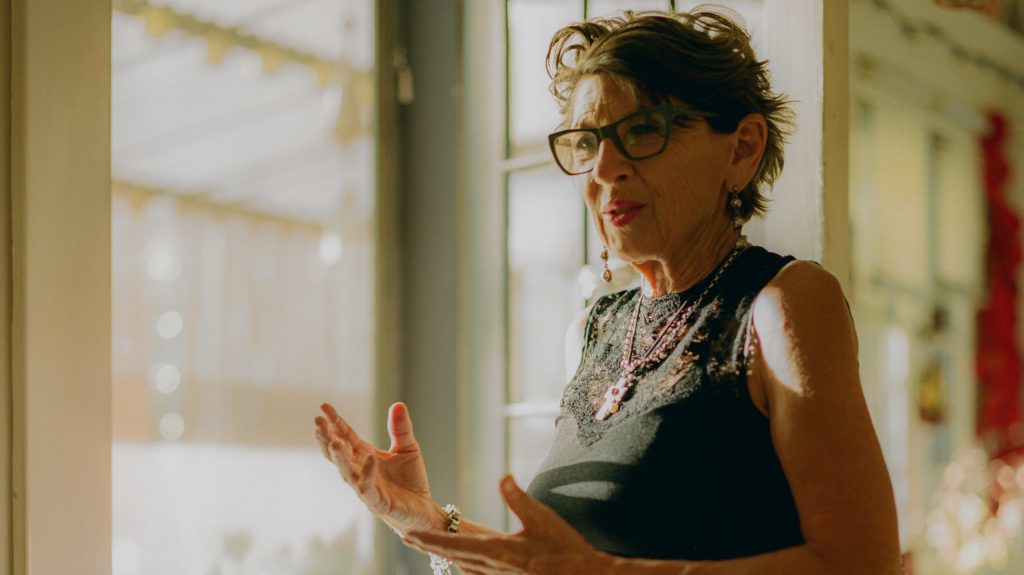I started this column in May of 2014.
Which means that for more than 7 1/2 years, I have written, every week, on a book, a ballet, a play, a garden, a painter, a contemporary issue.
During that time, I’ve interviewed scores of people: visual artists, musicians, film-makers, actors, pilgrims, a Holocaust survivor.
I keep thinking some enterprising Catholic influencer is going to notice the incredible uniqueness — genius, really — of what I’ve been up to here. That’s never happened.
So since we’re embarking on a new year, a 52-column blank slate, I thought this week to interview myself!
Your range is dizzying. How do you come up with ideas?
Why, thank you! Basically, I read. Memoir, travel, spirituality, novels, poetry, art. I read The New York Times just to see what happened that day. I skim longform.org, Arts & Letters Daily (aldaily.com), the Times Literary Supplement, the New York Review of Books. I’m drawn to liberalism in the old-school sense of free speech, the open exchange of ideas, a wide-ranging curiosity, which means that culturally the pickings are pretty slim nowadays. My Twitter go-to is @TitaniaMcGrath.
I’m way too impatient to listen to podcasts — just give me the transcript — and in lieu of news, I listen to classical music, take long walks, and borderline obsessively watch films.
I put everything that interests me to use, one way or the other: martyrs, cults, women’s tennis, Scottish otter keepers, heroin-addicted jazz singers, cloistered nuns, serial murderers.
Are you formally trained in art, music, or literary criticism?
Not at all. I have a law degree.
I have an intellect that’s been pruned by suffering and loneliness to discriminate the true from the false. I have a heart that yearns. I have a deep desire to celebrate the other. And I have a sense of humor.
I once wrote a piece on Bay Area-based photographer John Chiara. One of my finest moments was receiving word from his gallery that he’d read the piece and thought it the best commentary on his work he’d yet seen.
Some of the people around whom I feel most awkward are musicians, of whom I’m simply in awe. And to a person, I have found them to be gracious, forbearing, informative, and kind: Grant Gershon of the LA Master Chorale; Lisa Sutton of the Pittance Chamber Orchestra; Peter Sellars, internationally known theater and opera director; Joshua Ranz, first clarinet for the LA Chamber Orchestra.
That’s taught me a lot about the kind of person and artist I want to be myself.
How long does it take you to write a column?
It’s not the kind of thing I can just dial in. Every week, I “descend,” as I call it, insofar as possible, into the person, subject, or event at hand. An interview means a phone call, transcribing — which can take hours — and then wrestling the transcription down to 800 (supposedly) maximum words.
I really consider it a sacred honor, a call to obedience, to do the very best job I can. I do keep some rough kind of cost-benefit ratio in mind so I don’t spend an inordinate amount of time on any given week. But my life is definitely ordered by it. Monday, the day the column is due, I hit “Send” and breathe a huge sigh of relief. A couple of hours later the angst begins anew.
What kind of feedback do you get, if any?
I hear from any number of people who love the column. I will say it’s also been recognized by the Catholic Media Association, all kudos to Angelus News for publishing a voice each week — and I’m far from the only one — that doesn’t readily fit into any pat category.
I’m sure there are also many who don’t think the column is nearly “Catholic” enough. The whole underlying thrust is that to be a follower of Christ means to stay awake. To observe, as he did. To filter all of reality through the lens of the gospels.
All my work is very much underlain by daily Mass, the Divine Office, the rosary, confession. I’m in many ways very conservative — conservative in my devotion to the sacraments, the discipline of daily prayer, the belief that love displays itself in courtesy, conscientiousness, and gratitude.
That grounding orders my interests. I would never write about something just because it was “quirky,” for example. I’m looking beyond, within. What is the lens through which a follower of Christ, or any given subject, sees the world? What is the quality of heart? Is the work excellent? What is any given person willing to suffer for, for love?
Who oversees your work?
I’m consistently shepherded and supported by Pablo Kay, Angelus editor-in-chief, and David Scott, vice chancellor for communications. Hannah Swenson, Tamara Long-Garcia, Dianne Rohkohl, and Rick Beemer provide the editing, fact-checking, and first-rate graphics.
I’ve been given an incredible amount of respect and trust since day one. I don’t have to pitch my column; I’ve never had a column refused. To be given that kind of freedom is an extraordinary gift and an extraordinary honor.
And to write for the Archdiocese of Los Angeles? I may well have the best gig in Catholic journalism.

